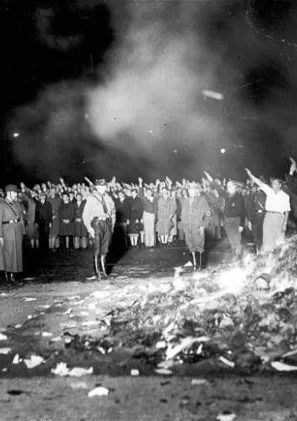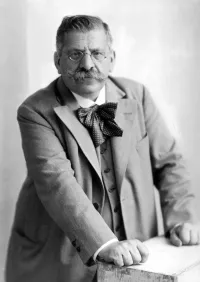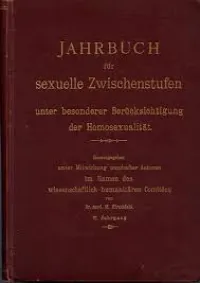-
First LGBT Emancipation Organization
"Soon the day will come when science will win victory over error, justice a victory over injustice, and human love a victory over human hatred and ignorance."
- founder Magnus Hirschfeld
The Scientific-Humanitarian Committee (S-HC) was founded in Germany by Dr. Magnus Hirschfeld in 1897 and became the center of the movement to reform repressive anti-homosexual laws in Europe in the first decades of the 20th-century. With over 500 members and 25 chapters the S-HC was an inspiration for gay rights activists and libertarian intellectuals world-wide – including Henry Gerber, who founded the Society for Human Rights in Chicago, IL in 1924 – the first gay rights organization in the United States. Hirschfeld espoused a theory of biological determinism to explain homosexual orientation – a phenomenon described as “sexual inversion.” In 1919 he established the Institute for Sexual Research to study all aspects of human sexuality; through it he and others wrote extensively, gathering case-histories and amassing data to make their case before various legislative bodies in an often rancorous and fruitless campaign to right the injustices perpetrated against homosexuals. This ground-breaking work helped to dispel the internalized homophobia that consumed sexual minorities; and, by shining a light on the realities of life for homosexual persons of the era, Hirschfeld and his contemporaries raised awareness and inspired further scholarship that was essential to the fight for social justice. As this research advanced, the sexual inversion model fell out of favor with the new generation of researchers who rejected biological determinism to assert homosexuality was both historically precedent and innate – a simple, value-neutral variation on the norm, not unlike being left-handed. Neither argument could prevail against the troubling political climate of the times, however. After the conservative tide – fueled in part by anti-Semitism and homophobia – swept Adolf Hitler into power in January of 1933, the Institute was targeted for elimination. On May 6th of that fateful year, while Hirschfeld was on a lecture tour of the U.S., students of the Deutsche Studentenschaft began parading in front of the Institute. That night, Nazis attacked and looted the archives. Four days later, the priceless trove of research Hirschfeld had amassed served as fuel for the famous book-burning rally, where some 20,000 books and journals, and 5,000 images, were destroyed. The Institute’s work came to an abrupt end. It would be decades before the resources could be found again, but by then the damage to the emerging understanding of sexual minorities among mental health professionals was done.
Demography
Nations Affiliated Germany
Era/Epoch Interwar Period (1918-1939) Jazz Age (1910-1940) Progressive Era (1890-1920) Roaring Twenties (1920-1929)
Resources





